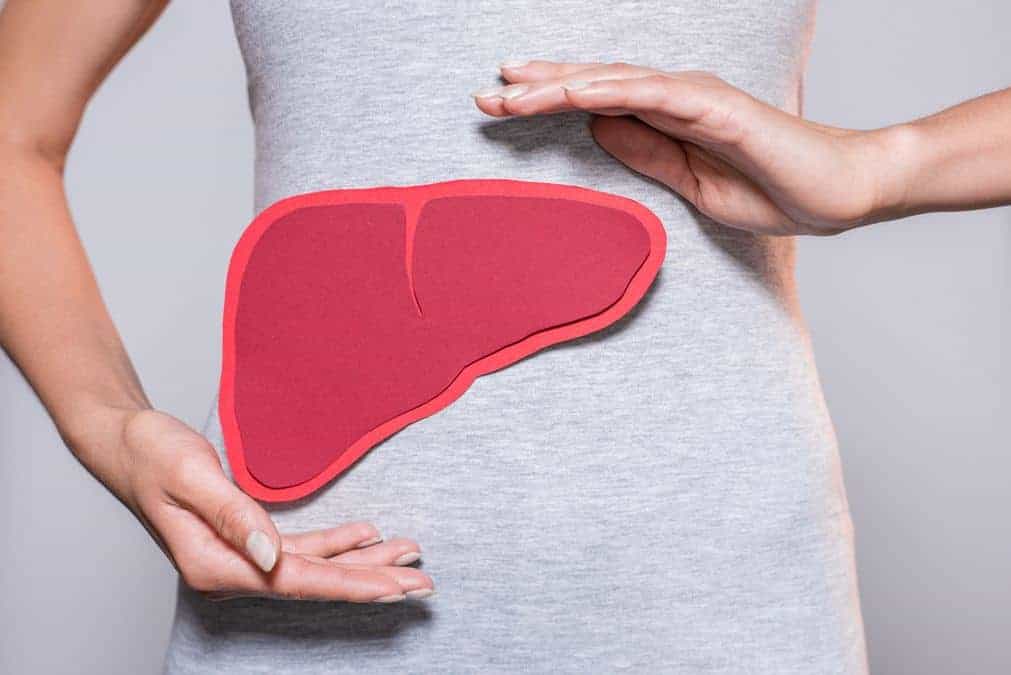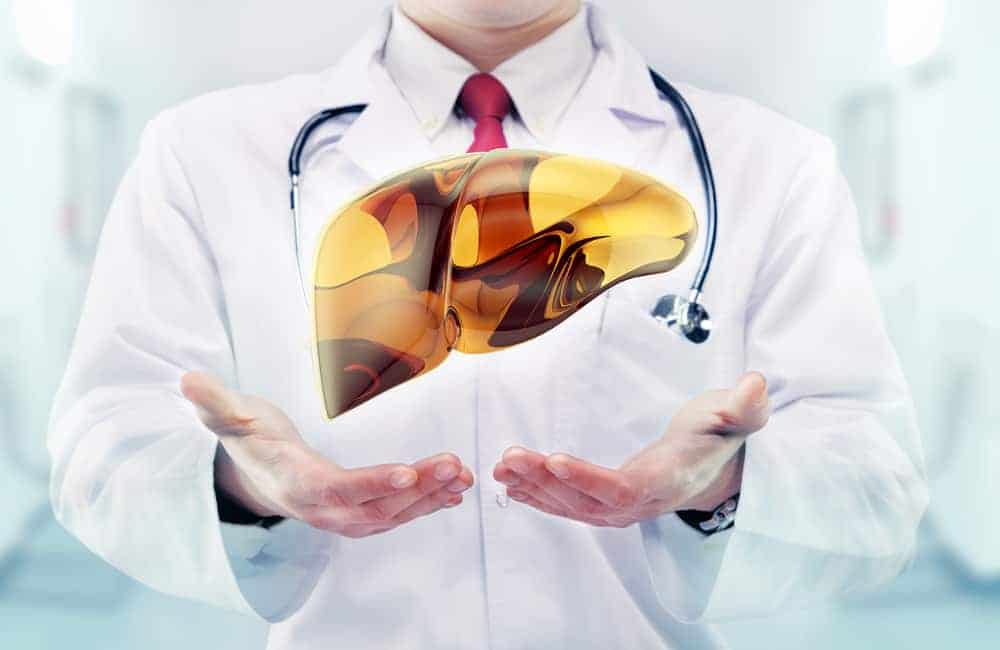
Phospholipids – what are they and their importance for liver health?
One of the most important internal organs in the human body is undoubtedly the liver, which is an extremely important part of the digestive system. It has many important functions to perform, and we can safely risk saying that we could not live without it. Its weakening immediately reflects negatively on the health of the entire body, so it is our duty to take proper care of it throughout life. An integral part of such a process is to provide her with properly selected nutrients, such as phospholipids, which are worth learning a little more about.
Contents
- 1 What is the liver and what functions does it perform?
- 2 How do liver diseases manifest themselves and to which it is exposed?
- 3 What are phospholipids?
- 4 Which functions of phospholipids are important to the health of the body?
- 5 What external sources of phospholipids are worth using?
- 6 How do phospholipids affect our liver and overall health?
- 7 Are phospholipids used in cosmetics?
What is the liver and what functions does it perform?
Since, according to experts, the greatest importance of phospholipids is for the health of the liver, it is important to learn more about this important organ and the largest in our body before learning about its properties. Its weight can reach up to 2 kilograms, it is located on the right side of the abdomen, in its upper part, and is formed by 4 lobes, mostly covered by peritoneum:
- Right;
- left;
- quadrilateral;
- caudal.
Extremely important is the blood supply to the liver, which reaches it in two ways:
- through the portal vein, about 70-80 percent of the blood going to this organ;
- through the hepatic artery, about 20-30 percent of the total blood supply.
As for the cellular structure of this organ, as much as 65 percent is made up of hepatocytes, and the remaining 35 percent is made up of reticuloendothelial cells, which determine the normal function of the liver. Of the most important functions it has to perform in the human body, the following are particularly noteworthy:
- removal of excess toxins accumulating in the body, formed, for example, as a result of metabolic processes and which can pose a serious threat to health;
- storage of glycogen, the material that provides us with energy;
- synthesis of bile necessary for proper digestive processes and fat metabolism;
- improving fat absorption;
- participation in the metabolism of hormones produced by the thyroid gland;
- production of proteins that make up the plasma and are responsible for blood clotting, among other things;
- production of cholesterol, the HDL fraction of which is even essential for health.
How do liver diseases manifest themselves and to which it is exposed?

The functions performed by the liver mean that we should pay special attention to it and in nohe liver’s functions mean that we should pay special attention to it and never underestimate any emerging abnormalities that may indicate disorders of this organ. The first, all too clear warning signal should be pain in the place where the liver is located, that is, in the so-called right lower abdomen, often very strong. It is usually due to its pressure on other internal organs, and other, no less noticeable symptoms and visible signs are:
- skin symptoms, primarily the characteristic yellowing of the skin and its troublesome itching;
- yellowing of the eyeballs, caused by an increase in bilirubin levels in the blood;
- darker, yellow-brown color of urine;
- an increased tendency to bruising on the skin;
- swelling, especially around the ankles and lower legs;
- a characteristically diffuse, enlarged abdominal girth, commonly referred to as a “frog belly.”
- breast enlargement, including gynecomastia in men, resulting from abnormal metabolism of sex hormones in the liver;
- gastrointestinal bleeding, resulting from an increase in so-called portal blood pressure in the liver, seen especially in cirrhosis;
- nausea and vomiting;
- decrease in appetite and weight;
- severe abdominal bloating;
- elevated body temperature;
- disorder of a mental nature, a decrease in concentration, memory and general intellectual abilities, the cause of which is an excess of harmful toxins that accumulate in the liver, negatively affecting the brain and nervous system;
- neurological disorders, also indicating problems with the functioning of the nervous system;
- impaired immune system performance.
Failure to take care of the liver’s health can, over time, result in many of its more or less serious conditions, which, if not treated properly, can end tragically. Neglect in this regard can lead, among other things, to the development of:
- viral hepatitis;
- drug or alcoholic liver damage;
- non-alcoholic steatohepatitis;
- autoimmune hepatitis (AI);
- hepatic venous thrombosis;
- cirrhosis of the liver;
- cancer of the liver or biliary tract.
What are phospholipids?
We already know how important functions in the human body are performed by the liver and what diseases it can be exposed to. One of the factors for taking proper care of its health is the aforementioned selection of nutrients that we supply with food, including phospholipids. Their optimal content in blood plasma decreases with age, but should not be more than 3 g/l of fluid.
Phospholipids are organic chemical compounds, naturally produced by our body, included in the group of lipids, compounds with a complex structure, whichinclude, among others, phosphoric acid, molecules of alcohols, various fatty acids and an organic base containing nitrogen. Phospholipids can be divided into two basic groups:
Glycerophospholipids (glycerol esters), which include:
- Cardiolipin (diphosphatidylglycerol);
- Phosphatidylinositol;
- phosphatidylserine;
- kephalin (phosphatidylethylamine);
- lecithin (phosphatidylcholine), by far the most important when it comes to proper liver function.
Sphingophospholipids (sphingosine esters), which include:
- sphingomyelins;
- glycosphingolipids.
Which functions of phospholipids are important to the health of the body?
The importance of phospholipids for maintaining the health of not only the liver cannot be trivialized, as they are one of the most important materialsin the building blocks of the human body, responsible for the proper structure, integrity and permeability of cell membranes. Specialists also emphasize other, primarily biological, functions that phospholipids perform, such as:
- active participation in the course of many metabolic processes;
- participation in the production of certain proteins;
- activation and acceleration of cell regeneration, especially of the liver;
- protective functions of cells against possible damage;
- participation in the synthesis of compounds that are a source of energy.
What external sources of phospholipids are worth using?

These compounds are synthesized naturally by the human body, including in the blood or nerve tissues, and are endogenous phospholipids. However, it is worth supplementing their possible deficiencies from external sources, supplying them with carefully selected food products. At the same time, it should be remembered that the recommended daily intake should not exceed 2-8 g for an adult, and the best sources of exogenous phospholipids are:
- chicken egg yolks;
- fatty marine fish and seafood;
- soybean seeds;
- wheat germ;
- asparagus;
- liver, beef, pork and poultry;
- poultry meat;
- walnuts and peanuts;
- cow’s milk and products made from it;
- white cabbage;
- radish, especially Japanese radish;
- vegetable oils.
Although a properly balanced diet usually covers one hundred percent of the body’s daily requirement for phospholipids, in some cases, especially liver disease, it is worthwhile to use additional supplementation, such as in the form of tablets or other preparations having them in their composition.
It is also worth knowing that drinking alcohol has an extremely adverse effect on the amount of lipids, which under its influence can be completely destroyed. As their level decreases, the level of “bad” cholesterol LDL can increase, which adversely affects overall health.
How do phospholipids affect our liver and overall health?
The importance of adequate supplementation of phospholipids for liver health cannot be understated, although their deficiencies should be supplemented only during illness, when we are healthy, their amount in the body is mostly sufficient. The primary function that phospholipids, especially phosphatidylcholine, perform in relation to the liver is to accelerate the regeneration of its damaged cells. They also affect this organ in other ways:
- they improve the permeability, elasticity and stabilize the cell membranes of hepatocytes, the very cells that make up the liver;
- improve the lipid profile in the blood;
- reduce damage caused by alcohol abuse or certain groups of drugs;
- alleviate symptoms and accelerate the treatment of inflammation of the liver and its viral diseases;
- have antibacterial properties, counteracting infections of the entire digestive system;
- participate in the metabolism and cellular transport of cholesterol, thus reducing its level in the blood, especially the harmful fraction LDL;
- simultaneously support the health of the heart muscle and other elements of the cardiovascular system, preventing atherosclerosis, arteriosclerosis and ischemic heart disease, among others;
- stimulate the nervous system and brain to work more actively, thus improving memory, concentration and general cognitive abilities;
- they improve the conduction of nerve impulses and protect neurons from damage or death, and studies show their effectiveness in alleviating the symptoms of neurodegenerative diseases, such as Alzheimera and Parkinson’s disease.
Are phospholipids used in cosmetics?

Another, no less important, field of application of phosph olipids includes cosmetics, as they are important components of many preparations, such as creams, for daily skin care. Above all, they are appreciated for their properties that allow them to form a protective filter on the skin, protecting it from adverse external factors, moisture, or UV radiation.
Phospholipids are also characterized by the effect of restoring softness, firmness and elasticity to the skin, and thanks to them, nutrientsThanks to them, nutrients can easily penetrate the deep layers of the skin through the outer, keratinized layer of the epidermis. They show effectiveness in thoroughly cleansing the skin, from makeup and other impurities that settle on it. They are simultaneously moisturizing, lubricating, soothing irritation and redness, as well as regulating the sebaceous glands, counteracting excessive sebum secretion, which can lead to the development of acne.
Sources:
- https://www.healthline.com/human-body-maps/liver
- https://www.healthline.com/health/liver-disease-symptoms



